Imagine trying to solve a puzzle, but from a distance, without a firm idea of what the overall picture even looks like.
Welcome to health research, where the majority of people dedicating their life’s work to improving outcomes have rarely personally experienced the health complication they are studying. It is like learning how to fly a plane by reading about it, without ever actually getting in the cockpit. Understanding the basics of how a plane, or a disease, works is very important, but it is only a part of the puzzle.
What do researchers do to get a better idea of how their research could impact the everyday lives of the people who they are hoping to help? By involving people with lived experience in their research. Meet three individuals who have kindly taken the time to share their experiences and insights into what it is like partnering with Advancing Health Scientists.
Research partners to the rescue
Eileen Davidson, Katrina Prescott, and Jim Mann have worked closely with scientists at Advancing Health, adding valuable perspectives gained from their lived experiences to several research projects.
“What I’ve been able to bring to the table as a patient partner includes identifying what is important to the patient, and helping with recruitment, knowledge translation, and dissemination. When I present alongside researchers about participating in their studies, I’m able to bring a more human side to the discussion,” shared Eileen, who has been actively involved as a research partner with Dr. Linda Li and Arthritis Research Canada following her rheumatoid arthritis diagnosis.
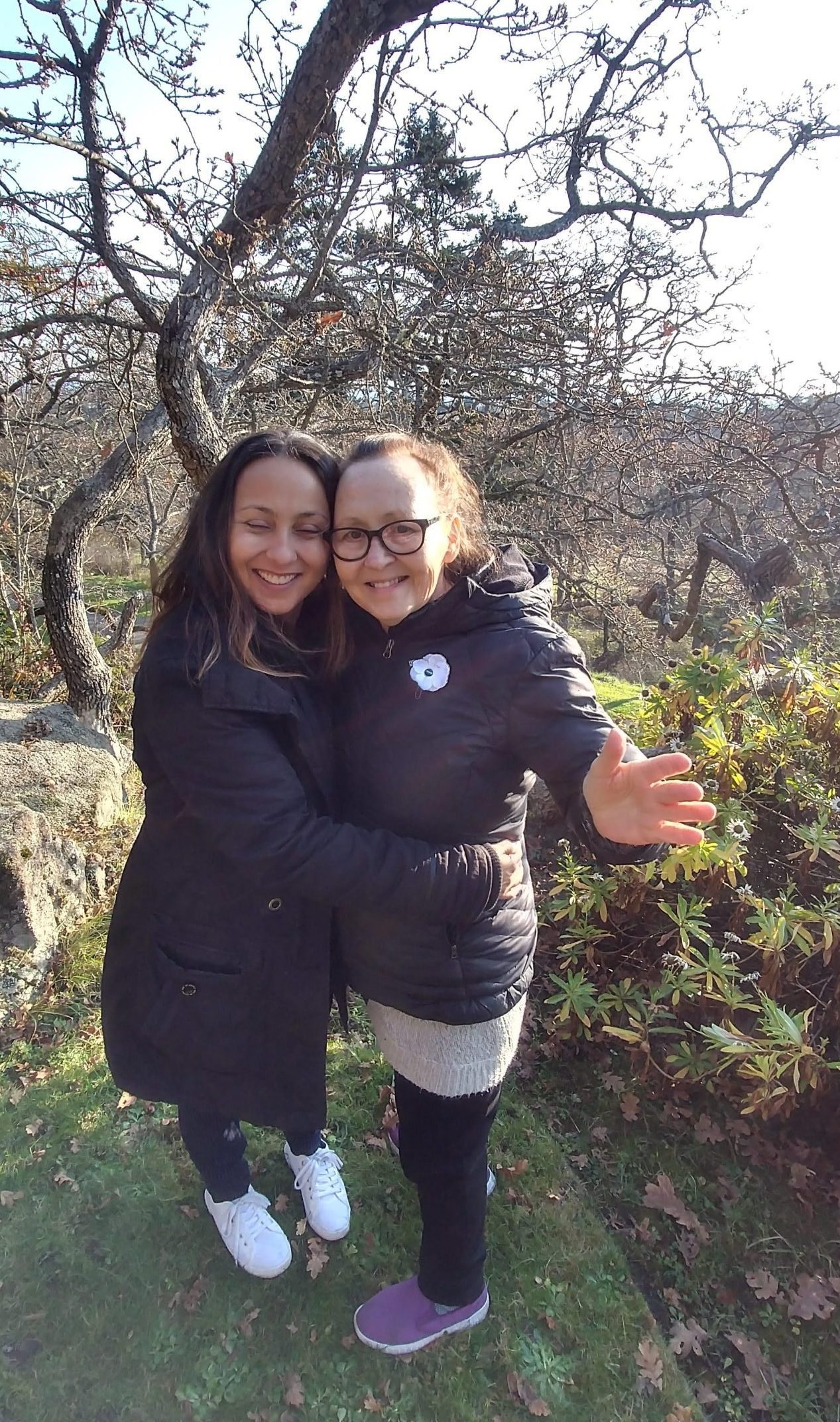
When Katrina Prescott, a full-time caregiver for her mother who had lived with dementia, was contacted by Dr. Wei Zhang to discuss her experience, she was thrilled. Prior to her involvement in research, Katrina had struggled to find any information or support regarding people whose life is completely changed to prioritize caregiving responsibilities. “Participating in research made a difference because my experience contributed to the body of knowledge that can influence change in long-term,” she said. “If my lived experience can support another person in a positive way, then I’m happy to share my story.”
Jim Mann, a research partner living with Alzheimer’s who has worked closely with Dr. Lillian Hung since 2015, says, “We certainly have a mutual respect on both sides of what we bring to the conversation and to the projects we work on. She recognized early on there were benefits to involve people with lived experiences.”
But how did they get involved with research in the first place?
Stepping into the research realm
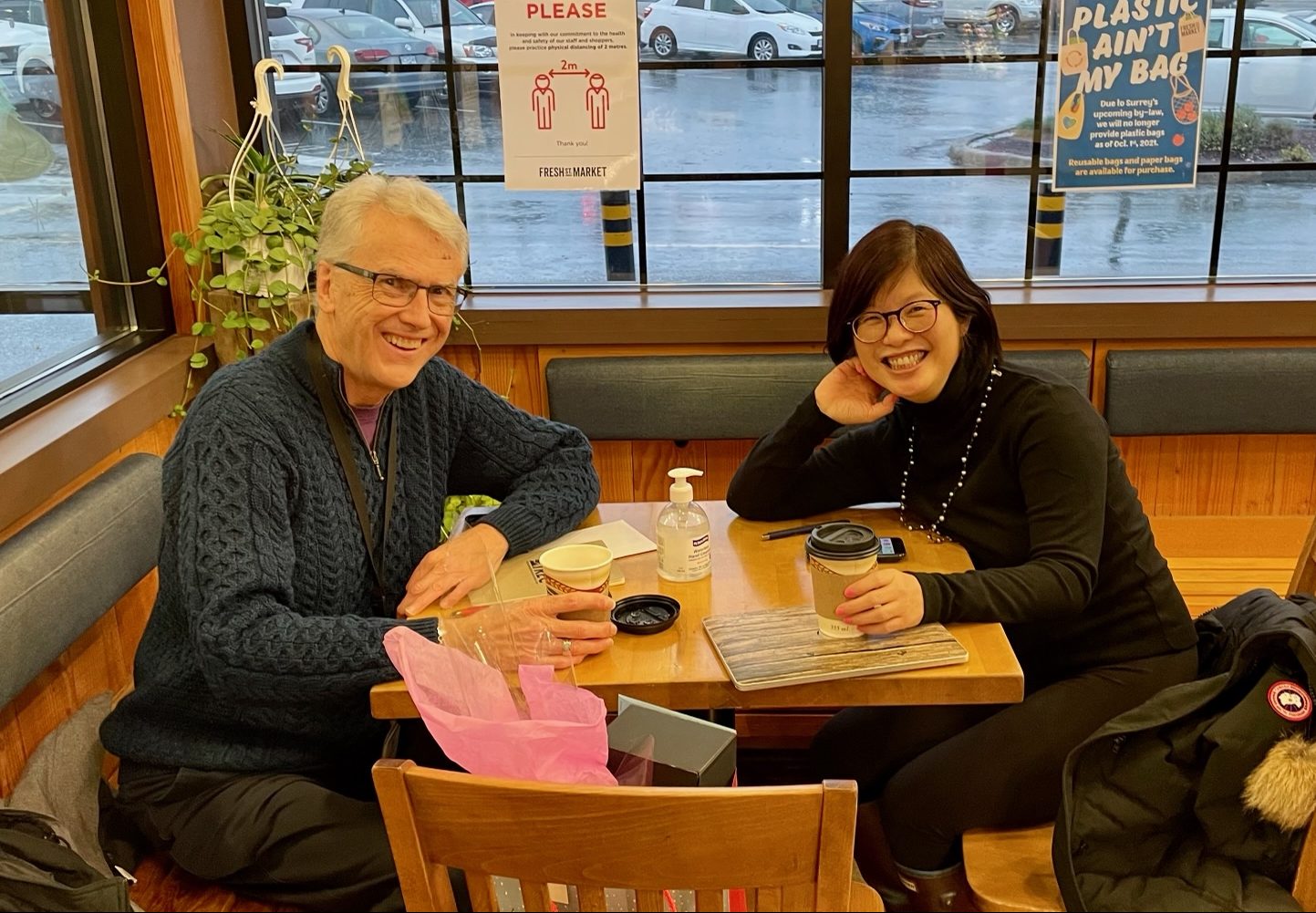
A profound common aspect among Jim, Katrina, and Eileen is that they took the time to put themselves out into the world and seek opportunities both to learn more and to share their stories. Jim had a keen interest in learning more about dementia because he had taken care of his mother who lived with it, before receiving his own Alzheimer’s diagnosis. He reached out and connected with the Centre for Research on Persons Living with Dementia at the University of British Columbia. He initially worked with Dr. Alison Phinney, before meeting Dr. Hung who was Dr. Phinney’s Ph.D. student. “Lillian came out to Surrey and we would sit at Fresh St. Market, where they have fabulous coffee, and we’d have our meeting. That was where we started to build our research relationship. Nearly every time we meet, she drives out and we enjoy our coffee and just talk and exchange information.”

After her diagnosis, Eileen connected with a rheumatoid arthritis focus group through Patient Voices Network, where she discovered the Arthritis Research Canada patient advisory board. “I wanted to know more about arthritis and it was the studies on exercise with rheumatoid arthritis that really stuck out to me, so I was eager to participate.” One of these exercise projects was with Dr. Li, who worked with Eileen on her symptom monitoring app OPERAS, which won an Ideator Award from The Arthritis Society in 2022.
Katrina’s involvement in research was a little more serendipitous. “I was a caregiver and had to do a lot of self-advocacy. It just seemed like I couldn’t get any help or support. Everyone around me was constantly saying they couldn’t do anything and my experience can’t be ‘proven’. The closed doors and lack of understanding were so frustrating, so I just decided to share the lived experience of myself and my mother with anyone who would want to hear it,” she said.
It was because of this self-advocacy that Dr. Zhang heard about Katrina and invited her to collaborate on her study evaluating lost productivity, which included the lived experience of full-time caretakers.
Working with academics
When asked what it was like working with researchers, Katrina, Jim, and Eileen were overwhelmingly positive.
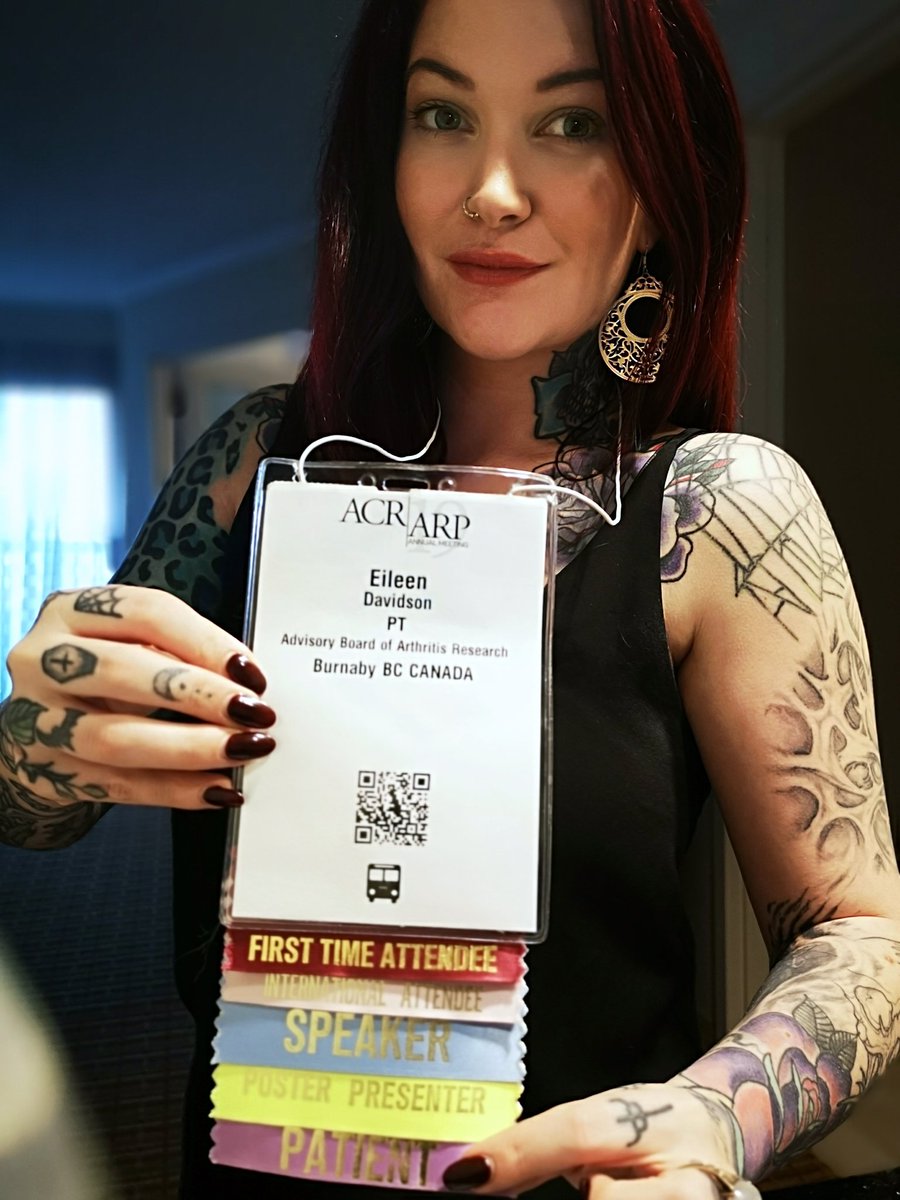
“I was grateful that they genuinely cared and that anyone was taking an interest in me and my lived experience, what me and my mom were going through, and how our lived experience could be used for the betterment of others. I don’t want anyone to go through what we went through. I felt enthusiastic and grateful and keen and energized,” said Katrina. She also emphasized that her time was respected and she never felt pressured if she didn’t have the capacity: “My involvement was when I could be involved and how I could be involved — it was entirely up to me.”
Jim and Eileen had similar experiences, sharing that the researchers would work around their availability and they had the freedom to participate however they chose. In fact, over time they would become increasingly involved in various research projects.
“Once I started to get involved in arthritis research, I participated more. Even just attending meetings, I am learning more and more about the health research process,” shared Eileen. In fact, her continuous involvement as a research partner has led to her presenting, both independently as a research partner and alongside researchers, at rheumatology conferences internationally!
Although Eileen has flourished as a research partner, becoming an Ambassador for Arthritis Research Canada, she noted that having a key contact to provide easy-to-understand answers throughout her involvement in research would have been welcome support to help her feel more comfortable early on, and grow in her role.
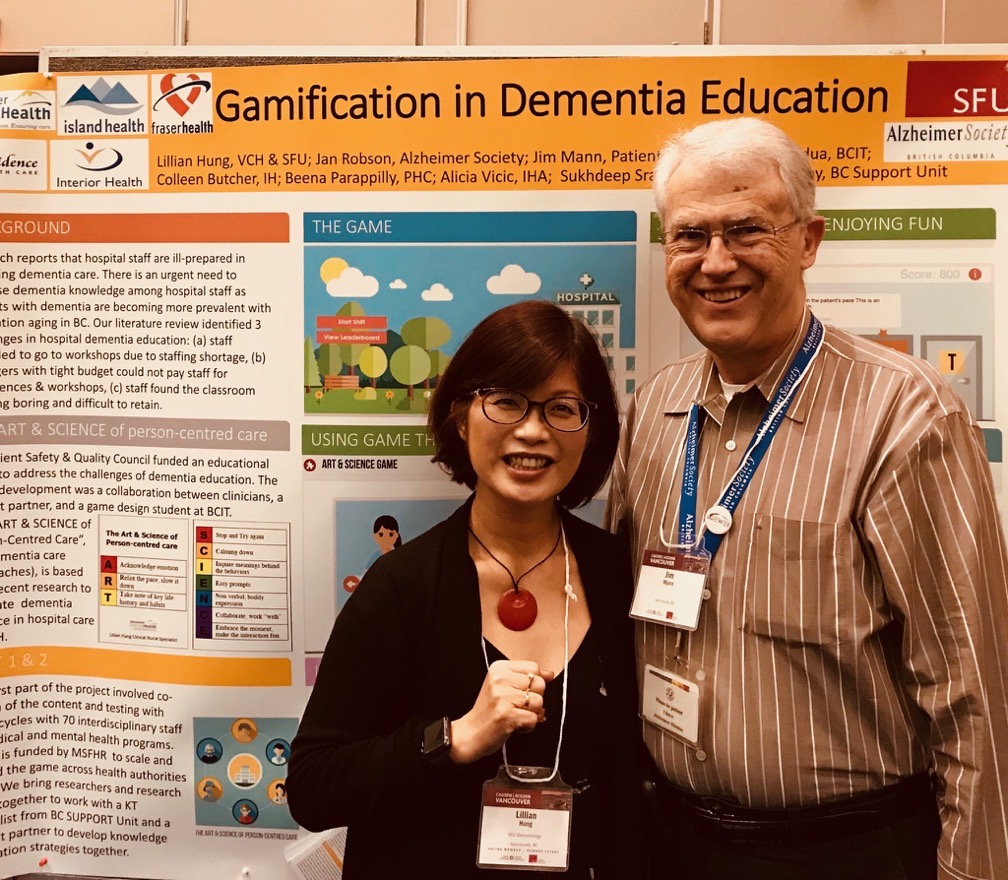
Having worked with Dr. Hung for nearly a decade, Jim’s role as a research partner has also evolved. Not only is he listed as an author for several published papers, he also co-leads projects including one looking at how robots can be used to reduce social isolation in long-term care. “While working with Lillian, I built up my own knowledge base so now I’m doing so much with her and others. I’m given credibility and her students will talk with me and ask my opinion and that’s the biggest thing, but that didn’t happen overnight,” he said. He has also recently become a member of the CIHR Advisory Board for the Institute of Aging.
Awareness and advocacy
Contributions to the research community are just part of the incredible work research partners do. Being passionate about improving the lives of others with similar lived experiences reaches far beyond academia and into the community. It was Katrina’s advocacy, for example, that led to her involvement in research, but she continues to be involved in advisory groups and even produced a web series on her experience.
In addition to providing insight from his personal experiences, Jim is also passionate about actively fighting against the widespread, misinformed perceptions society has about people living with dementia. “There is a journey for most people who go from a diagnosis of dementia to long-term care, yet society often thinks we aren’t capable of making decisions once we are diagnosed,” he explained. “That’s why I talk a lot and why I present, and I want to spread awareness that I can still communicate and make decisions because I have both good days and bad days.” Jim has also shared his story on YouTube, which has received several positive comments, including its usefulness as a teaching tool. He can also be found on Twitter @jimmannBC, where he enjoys communicating with the research community and finding academic papers on other areas of health that interest him.
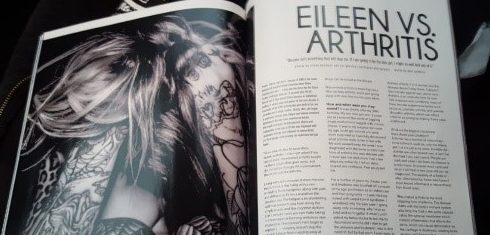
Eileen is also a very active arthritis awareness advocate who shares her personal journey on several different platforms including CreakyJoints, her self-published blog Chronic Eileen, and even Inked magazine. “Participating in research means I’m also able to share the benefits by creating quality content for the larger arthritis patient community and the general public on social media and beyond.” Eileen is very active on Twitter, sharing her research experiences, advocacy work, and her everyday life with her son and their four adorable cats. Follow her at @chroniceileen.
A two-way street
As evidenced by the stories shared by Katrina, Eileen, and Jim, research partners have different experiences depending on the project, but there is one thing that is always valued when sharing lived experiences — mutual respect.
“I helped develop the questions of Dr. Zhang’s Valuation of Lost Productivity tool. The research was very significant and I felt fully involved. It wasn’t just filling a survey, it was comprehensive and I felt that my feedback and lived experience was significantly impacting the research being done,” shared Katrina, who is happy to help out however she can.
Eileen found personal value in participating because it taught her a lot of medical terminology — and what to watch out for with her diagnosis. “I can have much easier conversations with my health care professionals knowing what questions to ask and what their answers mean,” she said. “The education that I get from the research helps prepare me for important and sometimes difficult questions about living with this disease. This experience gives me the knowledge to communicate with researchers to help make their work more approachable for others living with arthritis.”
Jim shares some advice for researchers wanting to work with patient partners. “Be open to try and to sit down and talk with someone with lived experience about what you’re doing and the intent of where you are considering going with a project. It is like a job interview where both the researcher and research partner understand each other’s needs and expectations, you may be surprised by what you learn.”



